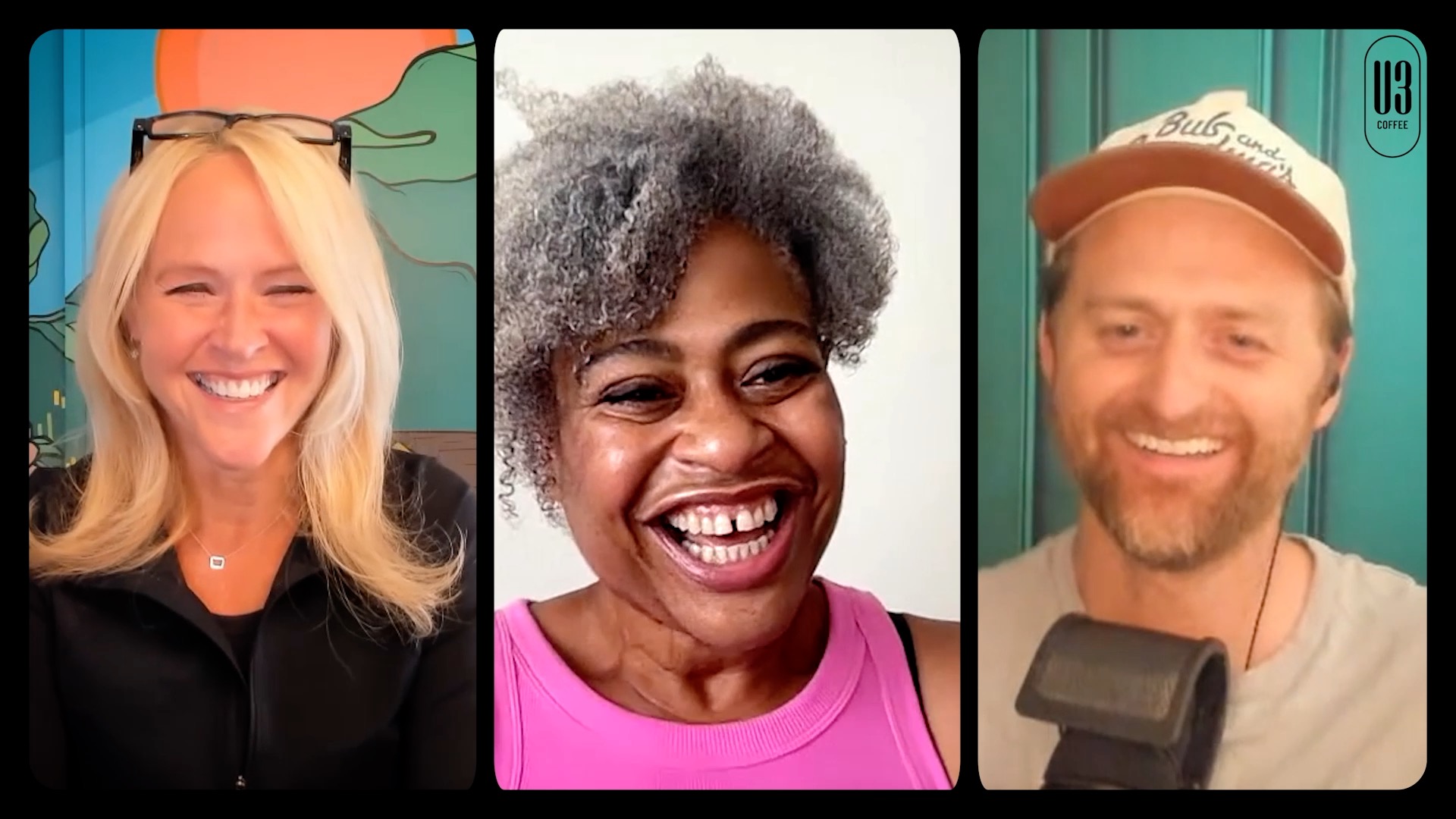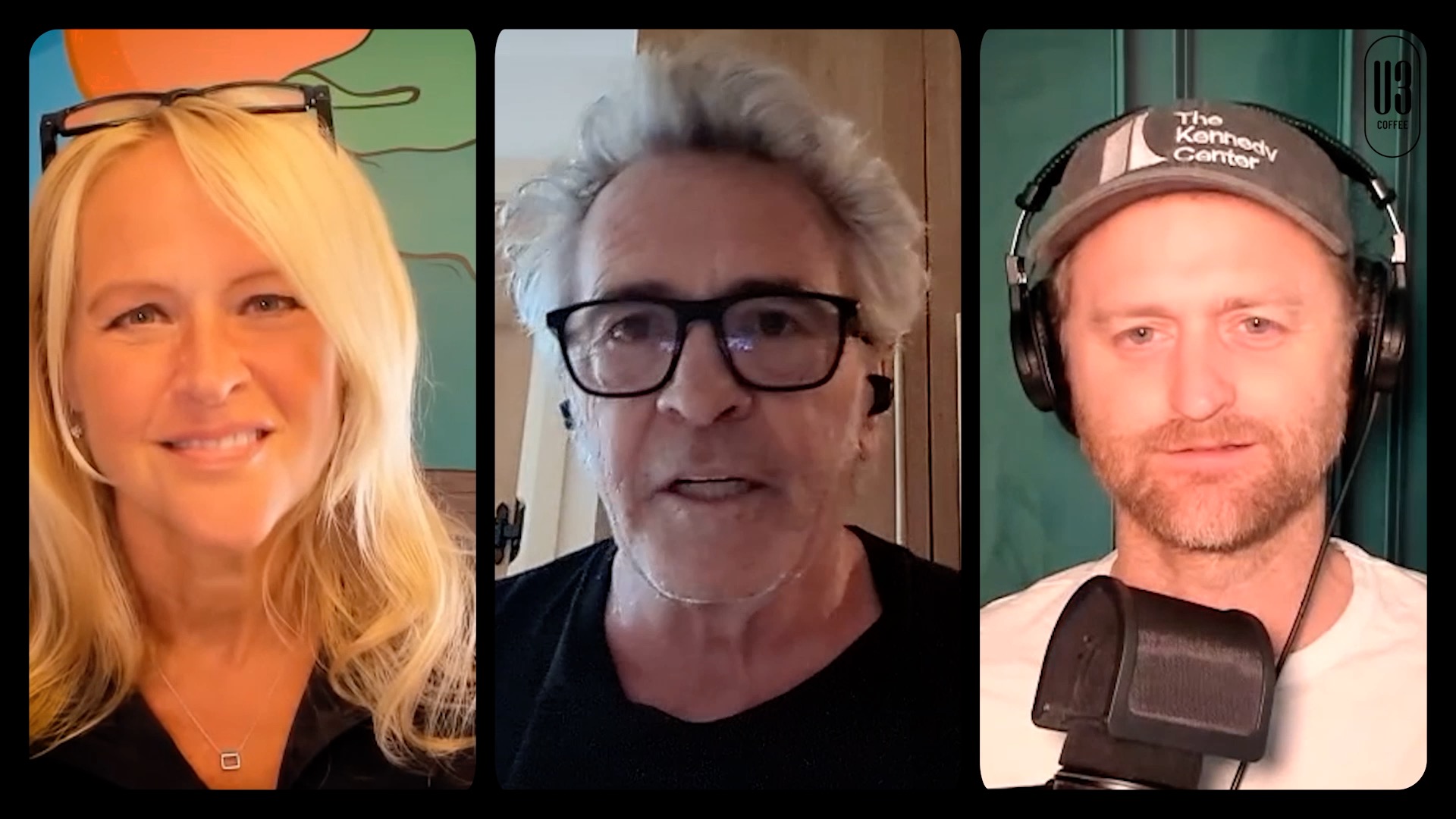Takeaways
1
The trajectory of Mark’s career changed after a visit to Nicaragua, where he saw that even skilled coffee growers often lived in poverty.
2
Mark recognized opportunities to improve and innovate coffee agriculture to benefit producers, create more sustainable practices, and lead to higher-quality products.
3
Mark sees enormous opportunities for the coffee industry, and coffee consumers, to turn the tide on climate change by supporting regenerative agriculture practices
Expertise: sustainable agriculture, green entrepreneurship, corporate social responsibility
Coffee insight: Coffee is the main source of antioxidants for most men.
Fun fact: In 1996, Bike Magazine included his blend, Organic Panic, on their list of the best training supplements.

Mark’s Coffee Origin Story
In the late 1980s, Mark was in training to become an oenologist—a winemaker-when he volunteered to judge a coffee competition to earn some extra cash.
“I thought, ‘Well, I have a wide palette. I’ll come in and do really well and, you know, impress everyone,” he jokes. What he learned through that experience, though, was that cupping was not only complex and challenging, it was also completely fascinating.
After the competition, he connected with the winning company, and they offered him an opportunity—leave wine behind and dive headfirst into the coffee industry. He accepted the challenge.
Mark’s Current Role
Mark is the Director/Senior Trader at Covoya Coffee, a wholesale green coffee importer with a focus on sustainability and ethical practices across the supply chain.
What Fuels Mark’s Work
Mark is hopeful that as part of the wider agricultural industry, coffee can help to turn the tide on climate change in the next 20 years. “Agriculture,” he explains, “represents 30% of global carbon emissions. … We can reverse climate change if all food on the planet was grown regenerative… The fact that we as an industry can participate in halting climate change is pretty powerful.”
What Mark Wants Coffee Drinkers to Know
Mark emphasizes that consumers also have a significant role to play in making those changes. Mark advises, “If you see the regenerative seal on a package…buy it, because you’re actually doing good work. If you can’t find a regenerative seal on a package, support organic agriculture. Organic agriculture, by its nature, needs biodiversity to flourish. Biodiversity is carbon capture is climate change reversal.”
How Mark Cultivates Community through Coffee
Early in Mark’s career, he realized that coffee growers who were producing some of the highest grade coffees in the world often lived in poverty, something that he found unacceptable.
Mark returned to his company in Northern California, which ran a 200-acre educational farm, looking for ways he could leverage that knowledge to benefit coffee growers. He became a champion of education and opportunities for farmers, pushing for fair-trade initiatives, shade agriculture, and permaculture, all of which held the potential to not only make the coffee-growing industry more sustainable but also to reduce poverty in producer countries.
“We took that education around the world,” he says, “teaching farmers to grow not only specialty coffee, but sustainable specialty coffee, which became certified—with the goal of getting them higher levels of income to alleviate the poverty they were surrounded by.”
Where to find him
Professional: https://www.covoyacoffee.com/
LinkedIn: https://www.linkedin.com/in/mark-inman-a56272/
Instagram: @norcalglobetrotter
Related posts
- Nov 2024 Candice started her coffee career as a barista, with no previous experience in coffee—within a few years, she was a certified Q Arabica Instructor and a trainer for the SCA. Today she’s a respected coffee educator and consultant who hopes her story can remind others that “coffee is for everybody.”
- Oct 2024 Patrick was an aspiring winemaker when a suggestion to his boss introduced him to coffee and changed the trajectory of his career. A thirty-year veteran of the coffee industry, Patrick is an award-winning educator, serial entrepreneur, and master roaster who is inspiring a new generation of coffee professionals.


